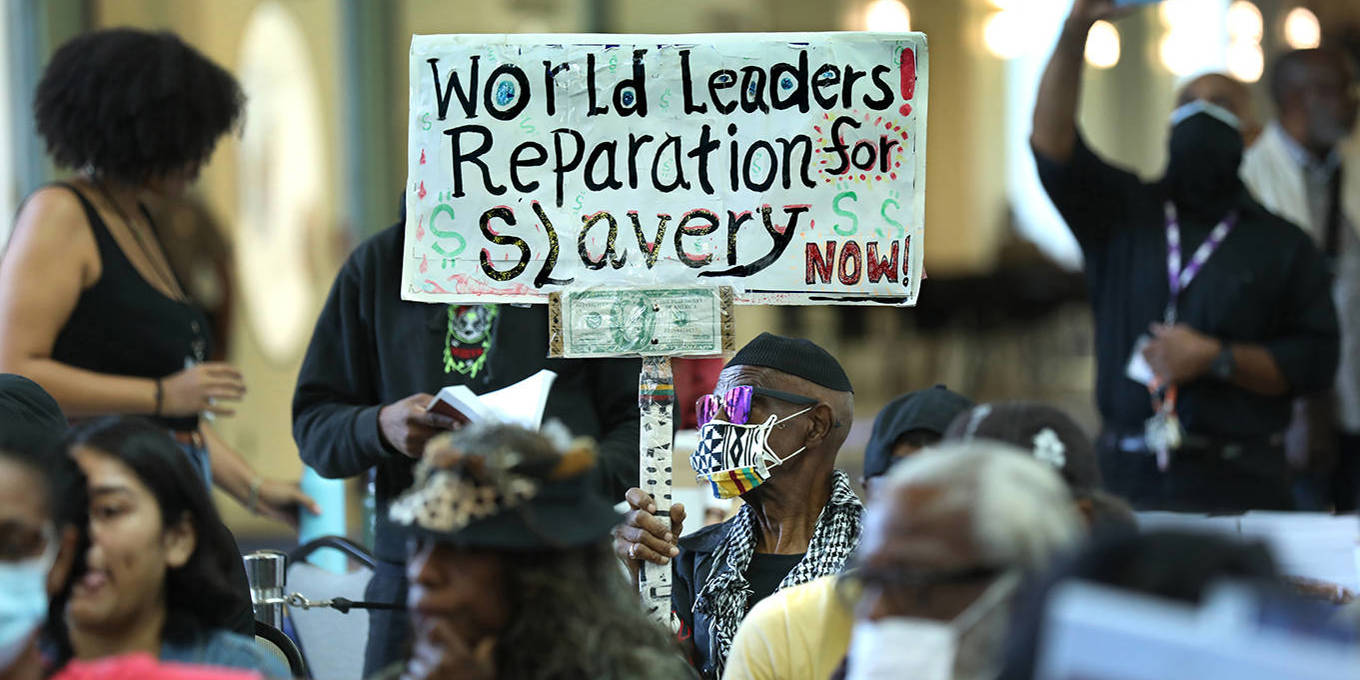Copyright Project Syndicate

PRETORIA – The transatlantic slave trade remains one of the most horrific crimes in human history. Between 1450 and 1888, European imperial powers (Britain, France, Portugal, Spain, the Netherlands, Sweden, and Denmark) transported 12-15 million enslaved Africans across the Atlantic. This coerced labor force was instrumental to the West’s industrialization, which was sustained by Europe’s colonial plunder of Africa’s natural resources. Perversely, when slavery was abolished, Western governments compensated slave owners and their descendants, rather than the enslaved and their heirs. In 1833, the British government agreed to pay £20 million ($26 million) – around 40% of its annual expenditure at the time and equivalent to some £3 billion today – to 46,000 slave owners. The debt that financed this compensation package was finally paid off in 2015. Africa and its diaspora in the Americas, the Caribbean, and Europe – referred to as the Black Atlantic – have long sought redress for the lasting harms caused by slavery. In 1993, the Organization of African Unity issued the Abuja Proclamation, which called for reparations for African enslavement and colonization. In 2014, the Caribbean Community (CARICOM) released its Ten-Point Plan for Reparatory Justice. And in 2023, the African Union published the Accra Proclamation on Reparations, which reflects a “shared commitment to addressing historical injustices and injurious crimes.” The current geopolitical environment does not appear conducive to achieving this goal. US President Donald Trump – who once described Africa and Haiti as a collection of “shithole countries” – has launched an assault on diversity programs, taken extraordinary measures to erase America’s history of slavery from public memory, and threatened to cut funding for the Smithsonian Institution, including the National Museum of African American History and Culture. Europe’s former colonial and slave-trading powers strike a more conciliatory and contrite pose, but they are not doing much better. Like Trump, European governments have cracked down harshly on irregular migration from Africa and elsewhere, while xenophobic parties are on the rise across the continent. But that has not stopped the AU from designating 2025 as the year of “Justice for Africans and People of African Descent Through Reparations,” an objective that it seeks to pursue over the next decade, in close collaboration with CARICOM. Together with civil-society activists (both from Africa and its diaspora), these institutions are advocating forcefully for reparations, particularly monetary compensation and debt cancellation, as well as restitution, including the return of pillaged cultural artifacts. Advocates of Black Atlantic reparations have often cited historical precedents to justify their claims: Germany paid more than $90 billion in compensation to the state of Israel and Jewish victims of the Holocaust and their heirs, while the United States paid more than $1.6 billion to Japanese-Americans placed in internment camps during World War II. While the quest for reparations may appear quixotic, it has scored some successes in recent years. In 2020, the Black Lives Matter movement rallied millions of anti-racism protesters worldwide following the killing of George Floyd, a Black man, by a white police officer in Minneapolis, resulting in the removal of monuments with links to slavery and colonialism across America and Europe. In 2021, the German government apologized and agreed to pay €1.1 billion to Namibia for a century-old genocide it perpetrated. In 2022, the Dutch government apologized for its historic role in the transatlantic slave trade and created a €200 million fund to address the present-day effects of slavery. The struggle for reparations is especially fraught in the US, where the legacy of slavery has shaped nearly every facet of modern life. As early as 1955, the civil-rights stalwart Audley Moore launched the Reparations Committee of Descendants of United States Slaves. From the 1990s onward, the human-rights advocate Randall Robinson argued for reparations to offset the long-term economic impact of slavery. In his book The Debt: What America Owes to Blacks, Robinson wrote that “the black holocaust is far and away the most heinous human rights crime visited upon any group of people in the world over the last five hundred years.” The disparities between white and Black Americans remain substantial. In 2019, the median wealth of Black households was just 10% that of white households. During the pandemic, Black Americans died from COVID-19 at rates 1.9 times higher than white Americans. Black people continue to suffer from housing, health, and educational inequities, and account for nearly 40% of prison inmates, despite being only 14.4% of the US population. The Republicans’ One Big Beautiful Bill Act will disproportionately affect Black children, 25.4% of whom live in poverty. Cities like Evanston, Illinois have passed reparations laws to compensate Black residents for past discrimination and expand equal-housing opportunities. California has tried to enact a similar policy, with a state task force recommending annual amounts that could result in payouts of more than $1.2 million for some older Black residents. But these efforts have been met with resistance in a changed political environment. California Governor Gavin Newsom recently vetoed legislation to create a statewide reparations system, despite apologizing in 2024 for “the perpetration of gross human rights violations and crimes against humanity on African slaves and their descendants.” And in May, Maryland Governor Wes Moore – currently America’s only Black governor – rejected a measure that would have established a reparations commission. Despite confronting stubborn barriers to reparations, particularly in the US, governments and civil-society activists continue to demand justice, often using CARICOM’s Ten-Point Plan as a template. The plan demands that slaving and colonial powers offer a full apology; create an indigenous people’s development program; repatriate willing Caribbean nationals back to Africa; return looted West Indian cultural heritage; build cultural institutions; address the regional public-health crisis; eradicate illiteracy; initiate an African knowledge program; support psychological rehabilitation; transfer technology; and annul regional debt, while returning the £20 million compensation paid to Caribbean slave owners.



